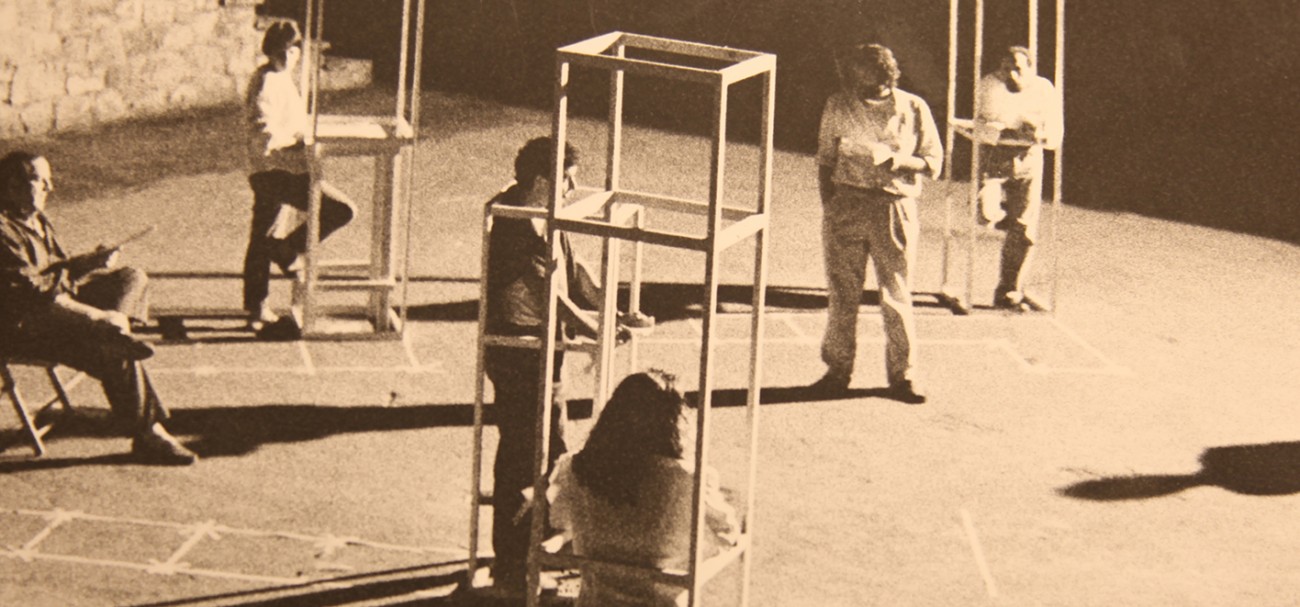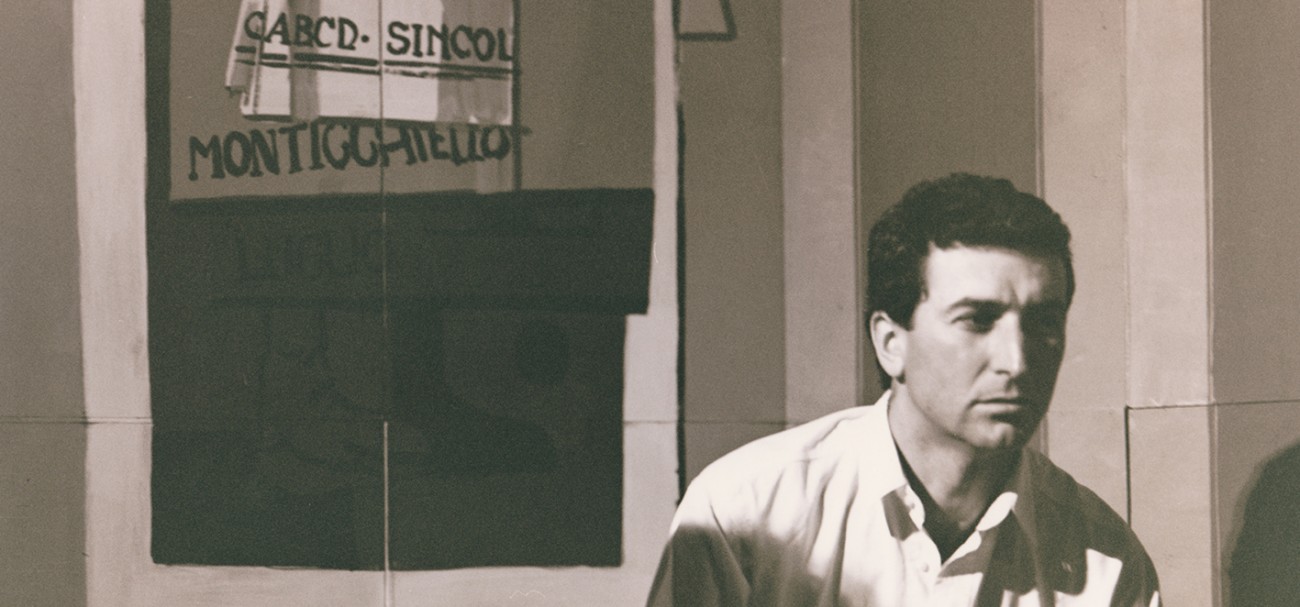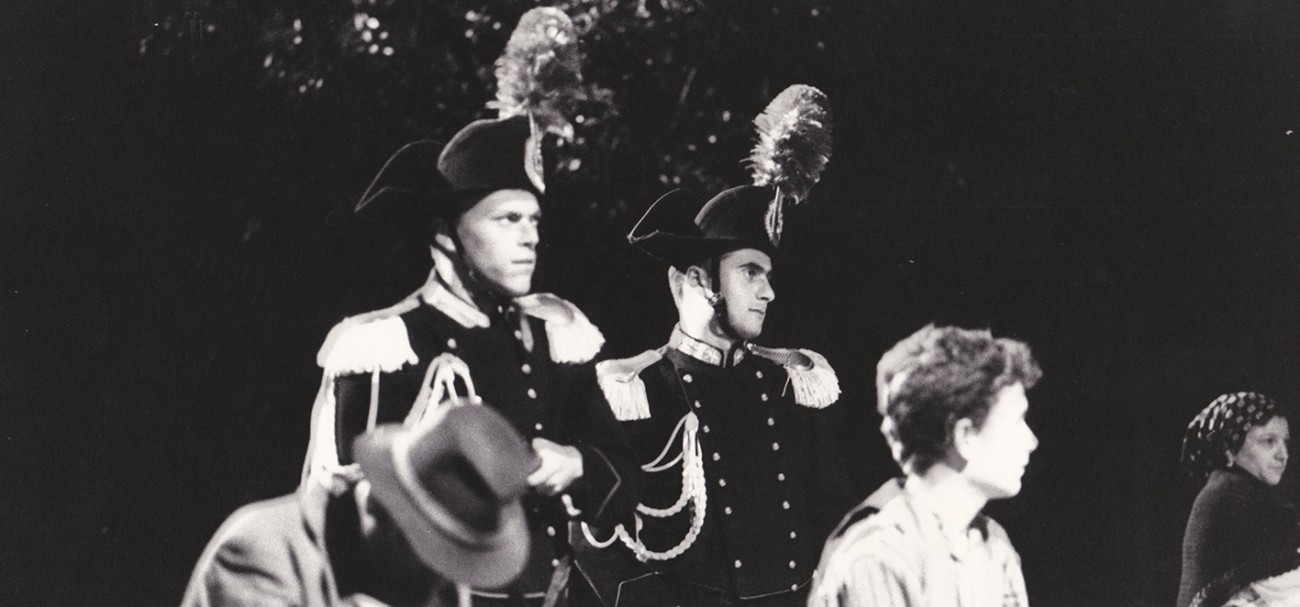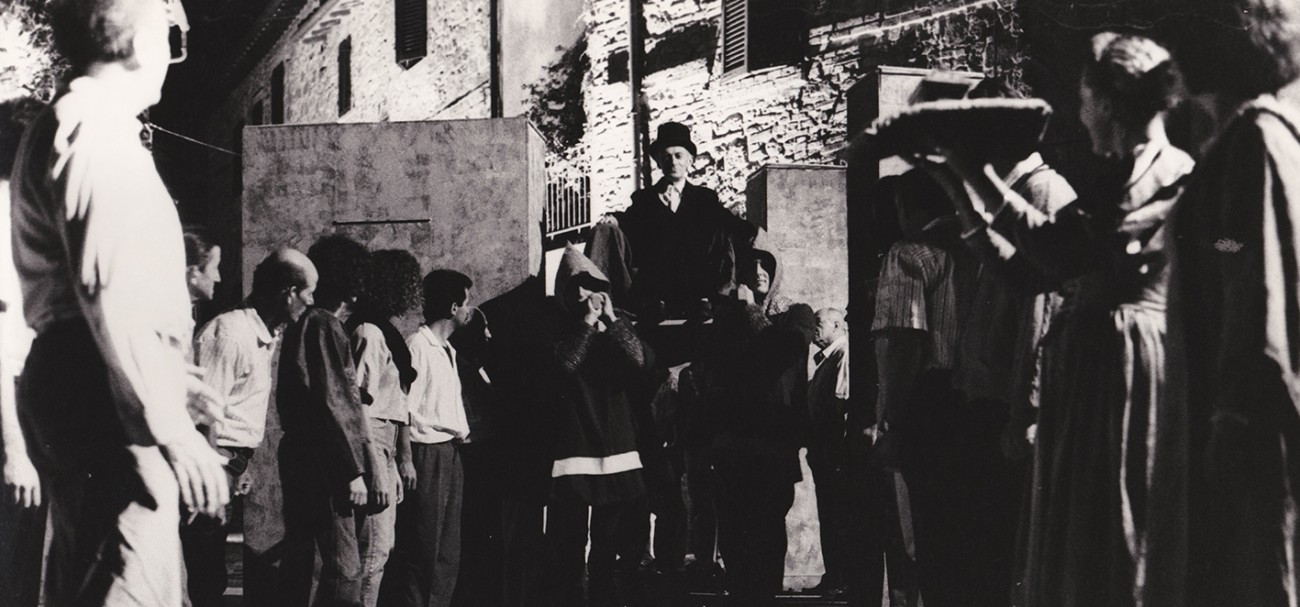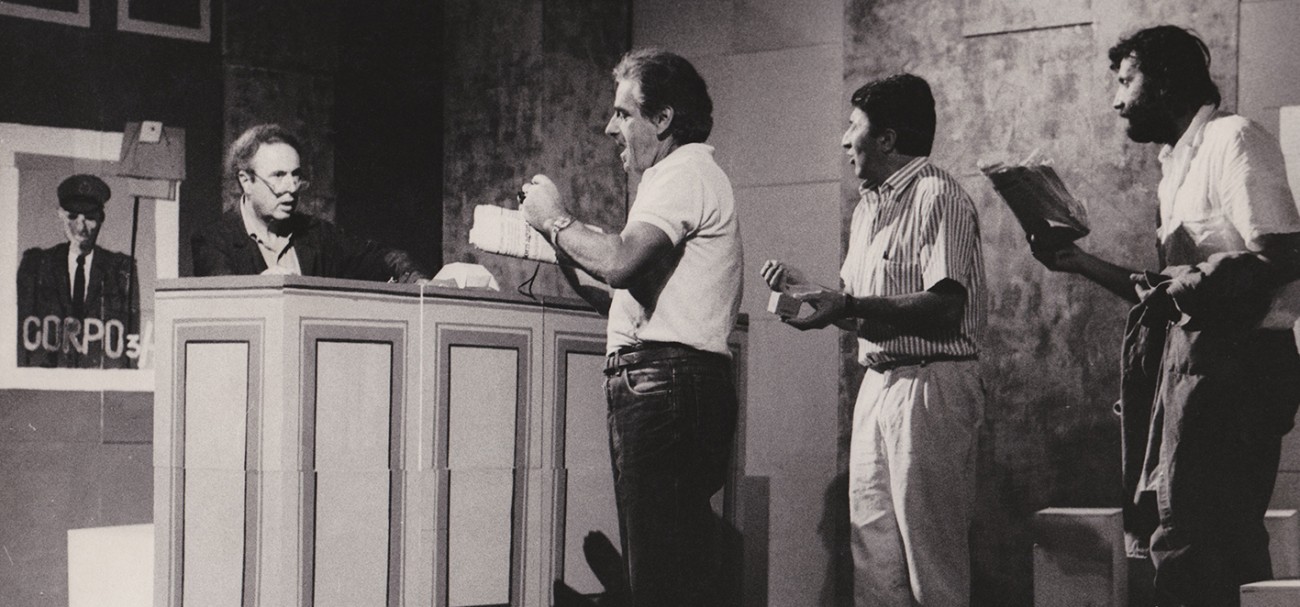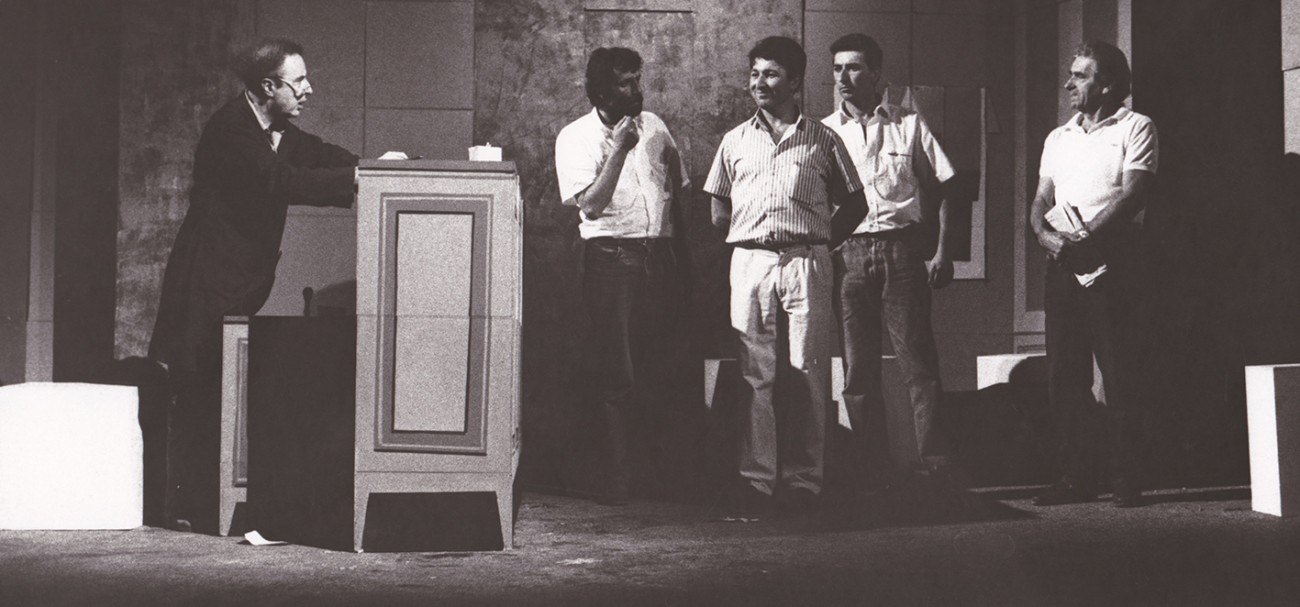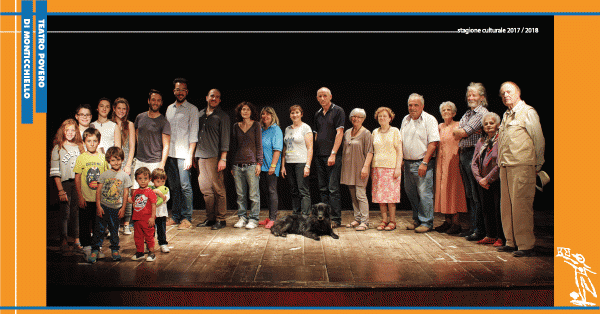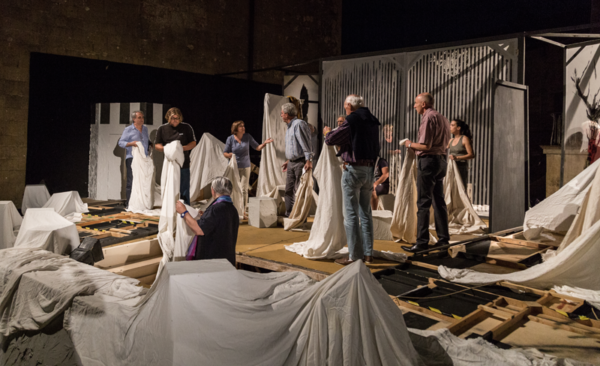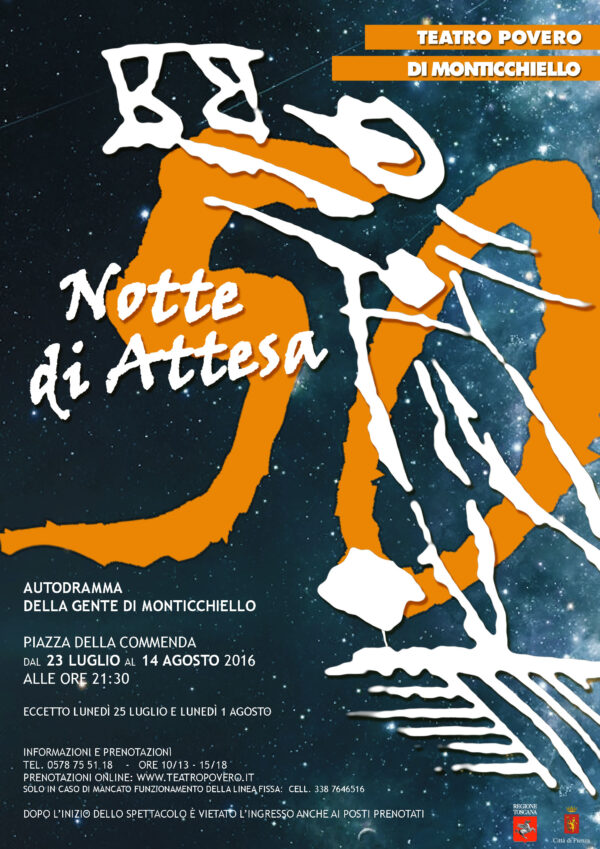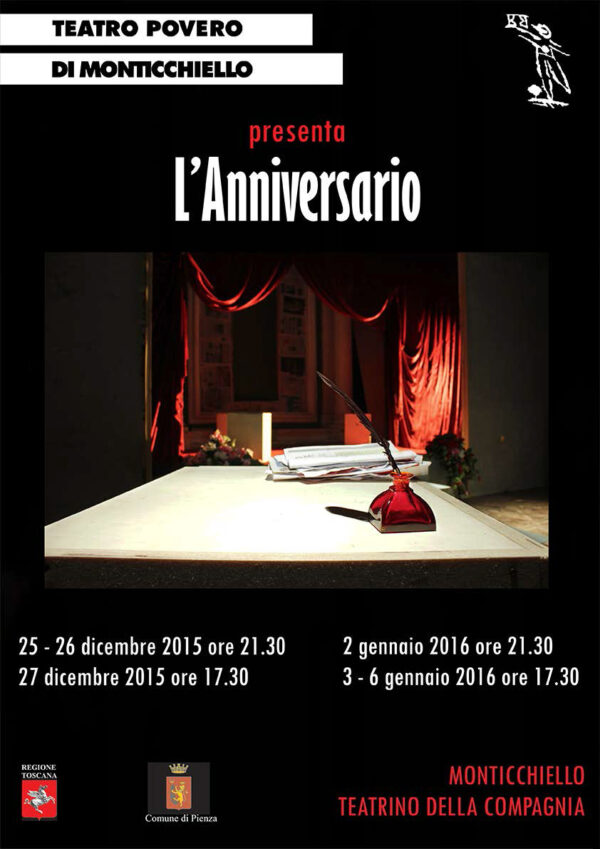The Teatro Povero saw the 1991 production as its twenty-fifth autodramma, since beginning in 1967; even though the main characteristics of the format had taken a few years to develop. A time for celebration, then? The community was not in a mood to congratulate itself. On the one hand, the company was suspicious of celebrations, and preferred to view the anniversary with some irony. On the other hand, it saw nothing to celebrate in the news of the first Gulf War—on the contrary, those events provoked very painful memories of other wars to which Monticchiello had been subjected.
The play opened with a satirical view of the Teatro Povero’s own actors, some of whom were caught up in a mood of personal nostalgia for previous shows, while others were working out how to make more profit from the audience. An attempt at public celebration, involving the village band and the presentation of awards, was darkly interrupted by a horseman wearing a gas mask and carrying a spear. This prompted memories of villagers who had died during the period 1944‑45; and a group of threatening voices depicted a world permanently filled with conflict and destruction. The climax of the first act was an implacable recitation of the names listed on Monticchiello’s memorial to the dead of the First World War.
In the second act we saw a peasant family at the time of that first war, during the autumn olive harvest. They were sheltering a family member who had deserted from the army, and had to face a visit from the carabinieri. Painful moral dilemmas were confronted, made more complex by other types of death and violence suffered by other peasants just from working in the fields.
The script by Andrea Cresti (who also directed, as usual), Maria Rosa Ceselin, Marco Del Ciondolo and Vittorio Innocenti was one of the most complex and multi-layered so far presented, combining realism with different levels of symbolic fantasy. It also drew heavily on contributions and family memories from other members of the company.

